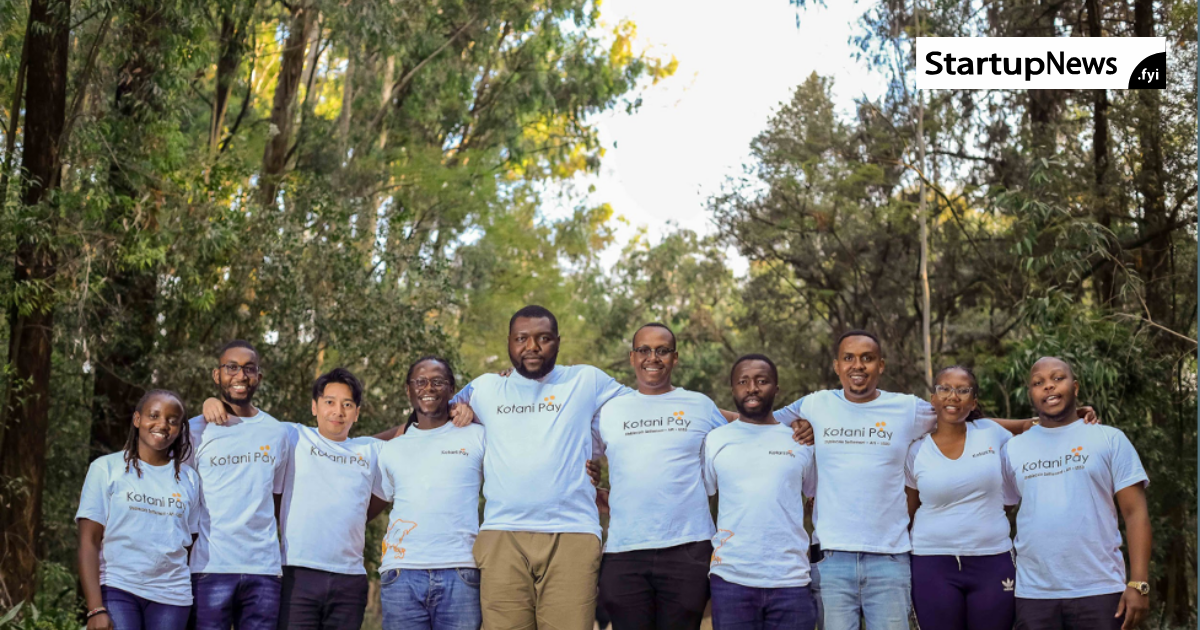Of the many lofty promises of cryptocurrency, one of the most commendable ones is its potential to bring financial inclusion to underserved users. Nairobi-based Kotani Pay is a crypto payments startup with a vision to make cross-border remittances easier for the large underbanked populations in Africa.
The two-year-old startup is targeting a use case that concerns the livelihood of hundreds of millions of people including in Kenya, Ghana, Zambia and South Africa. The startup, which has closed $2 million pre-seed funding round led by P1 Ventures, with participation from a number of investors including DCG/Luno and Flori Ventures, plans to further expand to Rwanda, Senegal, Ivory Coast, Tanzania, and Nigeria.
According to the World Bank, the Sub-Saharan region will receive an estimated $55 billion in remittances this year. In some African countries, remittances account for as much as 20% of GDP, according to stats from the United Nations.
Despite their key role in the African economy, remittances face an insurmountable challenge: high transfer fees. In some countries, the cut can be as high as 20% of the amount transferred. A number of factors have led to the exorbitant costs, including an underdeveloped banking system, information asymmetry, and currency fluctuation. In many cases, families at home don’t have bank accounts or even the official identifications to open one.
Recognizing these stumbling blocks in the traditional money transfer method, Kotani proposes the use of blockchain to facilitate remittances to Africa. Specifically, it’s tapping stablecoins, which are cryptocurrencies pegged to fiat currencies like USD, to move money internationally at a fraction of the costs of the old way.
Then, to actually cash out the stablecoins one holds on their mobile wallets and pay for things in local currencies, Kotani has built a middleware connecting blockchains to local payment networks, many of which let users send money on feature phones without the internet using a communication protocol called Unstructured Supplementary Service Data (USSD)
Kotani is offering its technologies as a B2B solution, connecting crypto platforms’ smart contracts on the one side and mobile money APIs on the other. Some of its major crypto partners include Yellowcard, DCG, Fonbank, Celo’s Valora, Mercy Corps, UNICEF Crypto Innovation Fund and Stellar.
Kotani also allows users to “on-ramp,” or convert their local currencies into USD, a solution that’s tailored more to businesses at the moment but could open to retail users in the future with the required licenses, the founder said. The process is enabled by a “network of liquidity providers through partnerships with local forex services and money transmitter operators from whom we source local USD,” according to the co-founder.
Most of the transfers that take place on Kotani — $23 million to date — are inbound payments. Given its enterprise focus, the platform’s average transaction size is $150,000. Like other payment infrastructure providers, Kotani monetizes through an interchange fee, which is on average around 1% of the gross transaction volumes, according to Macharia.
The startup is set to introduce other products including Reconset, a Reconciliation-as-a-Service offering, and Money Ledger, a Ledger-as-a-Service solution, after acquiring Fuhlstack, a Nigerian startup. Fuhlstack founder Lemuel Okoli joins Macharia, and Samuel Kariuki, as Kotani Pay co-founders.
Crypto Regulations
With a business that can potentially tip the balance of foreign currency reserves, Kotani is likely already on the radar of regulators. Macharia acknowledged that the central banks in the countries where the firm operates already “monitor these transactions as they oversee all termination points to banking and mobile money services.”
“We either work directly with the local mobile money operators or ride on the charter of regulated partners to ensure that our operations are compliant,” he continued, adding that “the central banks are actually getting excited about some of these use cases and are getting involved as they develop Central Bank Digital Currencies.”
The crypto regulatory landscape is changing rapidly, dampening investor confidence in some regions like the U.S. and creating posivie sentiments in others, such as Asia. Overall, Macharia feels “positive” about regulatory developments on the continent.
“We are seeing positive developments in the Southern part of Africa with Botswana, Mauritius and South Africa all launching Virtual Asset Service Provider Licenses that regulate Digital Asset Fintechs. MiCa passed by the European Union parliament is another positive development as it regulates stablecoin issuers, on ramps and off ramps and exchanges,” he said.
“Based on our engagement with regulators in Kenya such as the Capital Markets Authority, we believe it’s just a matter of time before other markets like Kenya, Ghana, Nigeria catch up.”


